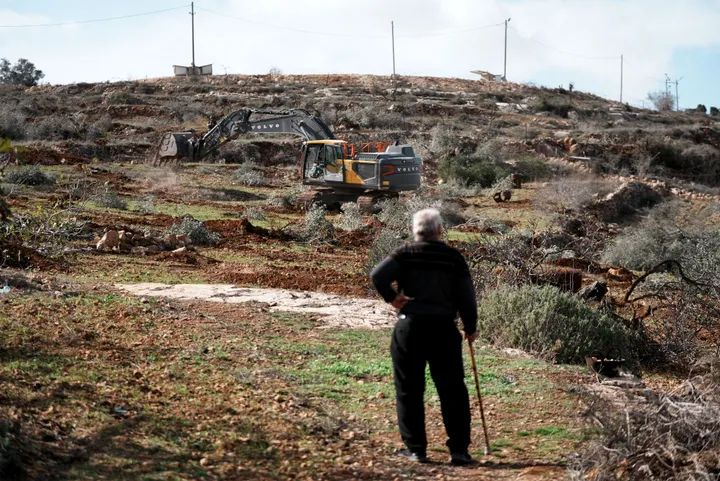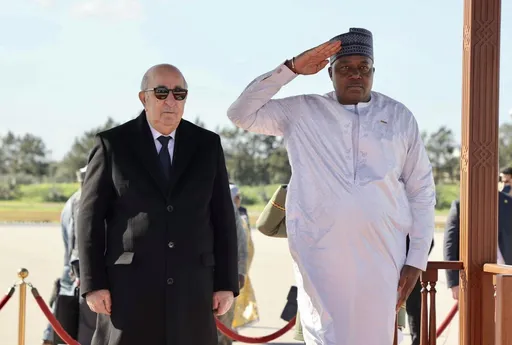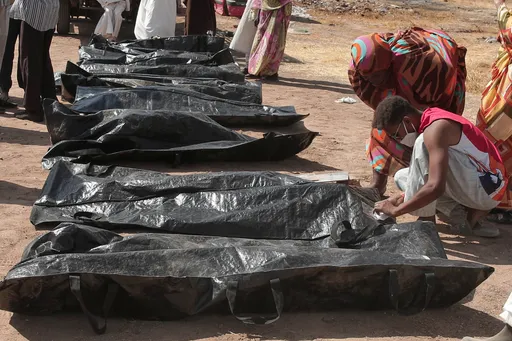By Abdulwasiu Hassan
In nature's grand scheme of things, livestock and crop farming would be expected to have a symbiotic relationship that sustains each other.
Nigeria, where agriculture is one of the economy's mainstays, presents a dichotomy of sorts within this template, with herders and farmers at odds for a long time.
The unrelenting conflict has been debilitating for the country, often resulting in clashes that cause deaths and destruction on a large scale.
Worse, these disturbances have spawned banditry, making kidnapping and intimidation commonplace, especially in northwestern Nigeria.
The magnitude of the problem involving cattle grazing in Nigeria and its socio-economic consequences inform the interest generated by President Bola Ahmed Tinubu's recent inauguration of a presidential committee on the implementation of livestock reforms.
Ajuri Ngelale, President Tinubu's special adviser on media and publicity, recently issued a statement saying that the brief is "to address obstacles to agricultural productivity and open up opportunities benefitting farmers, herders, processors, and distributors in the livestock-farming value chain."
The creation of a ministry of livestock development seals this commitment.
"Nigeria's livestock sector is huge, contributing more than 30% of the nation's agricultural GDP. It has the potential to grow much more and faster than this with the right policies and well-executed programmes," Dr Joseph Nyager, former chief veterinary officer of Nigeria and director of livestock and veterinary services, tells TRT Afrika.
Nyager sees the announcement as indicating that the Nigerian government is paying more attention to the country's livestock sector and deploying additional resources to spur growth.
Reform agenda
Cattle rearing in Nigeria revolves around transhumance, a traditional method in which herders move their livestock seasonally in search of grazing land. Conflict over access to pastures for grazing has increased over the years, primarily due to desertification.
Farmers and herders clashing frequently over land use has caused law-and-order challenges and impacted food security in the West African nation.
Efforts to address these resource conflicts include proposals for sedentary livestock farming, but finding a sustainable solution remains an arduous task. The government believes reform in the livestock sector is the only way out of the mess.
During the event in Abuja where he outlined this plan, President Tinubu said traditional livestock farming methods would be reviewed and repositioned with the support of stakeholders.
"We need to provide the incentive to enable Nigeria to finally take advantage of livestock farming. Dairy products and cold-chain logistics collectively offer substantial commercial and economic advantages," a statement quoted President Tinubu as saying.
Conflict resolution
Over the years, the conflict between herders and farmers has defied several attempts to end it.
So, where does the confluence of reality, pragmatism and the government's latest initiative lie?
President Tinubu is upbeat about the chances of success this time around. "When we have great opportunities in our states, why should Nigerians continue to experience conflicts?" he asked the gathering at the Abuja event.
"We have seen solutions and opportunities. With these adversities that have plagued us over the years, I believe that prosperity is here – in your hands. With the calibre of people that are here, this presents a unique opportunity also to delineate and establish a centric ministry called the ministry of livestock development."
According to the President, the initiative would allow veterinary doctors to have the necessary access to research and cross-breed livestock. "We can stop the wanton killings,” he declared.
Back to roots
Experts believe the new initiative can only work if it addresses the root of the problem straightaway.
"Herdsmen in Nigeria move with their animals in search of pasture and water. Over the years, this movement has become increasingly uncoordinated in that there are no boundaries," Dr Nyager tells TRT Afrika.
"This brings herdsmen directly in collision with farmers. This results in serious fighting, causing loss of life, livestock and properties as well as disruption of seasonal farming operations."
This has become increasingly prevalent and deadly, with criminal, political, and religious undertones complicating the situation. "It has become a national security issue," says Dr Nyager.
As a consultant on sustainable agricultural development, he advises the government to encourage different regions of the country "to develop their animal resources according to their comparative advantages — ecologically, genetically, culturally".
High expectations
The new ministry of livestock development will have to identify what actors in the industry currently lack and holistically provide them.
One of the ways to do that is by addressing and building capacity among stakeholders, which Dr Nyager says is currently inadequate.
The other focus areas are infrastructure support, access to low-interest finance, production, processing, and marketing support, and breed improvement.
Experts believe the new ministry should expand beyond cattle.
"It can look at small ruminants, poultry, pigs, rabbits, snails and fisheries. The ministry could also invest in crops to sustain and support feed production for different livestock species," says Dr Nyager.












.JPG?width=512&format=webp&quality=80)









